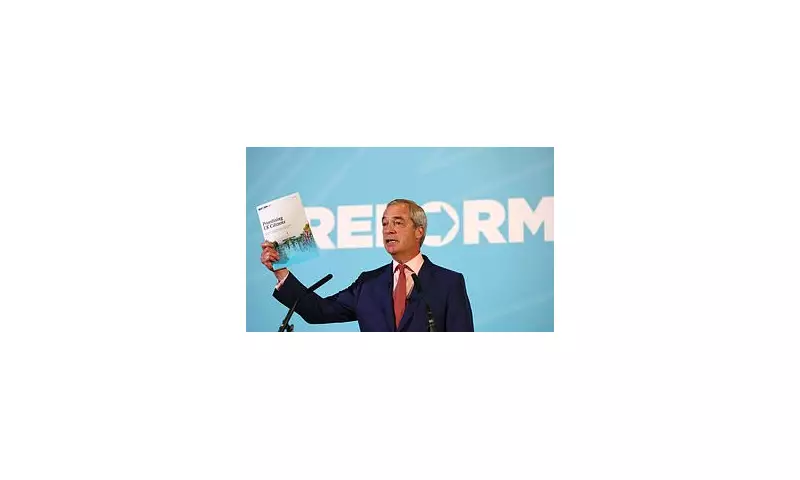
In a seismic intervention into Britain's immigration debate, Nigel Farage has unveiled a radical proposal that could redefine the UK's welfare state. The Reform UK leader is demanding a complete five-year ban on benefits claims for all new migrants, a move he claims could save British taxpayers a staggering £230 billion.
The £230bn Question: How Farage's Plan Would Work
Speaking with characteristic bluntness, Farage declared the current system "ridiculously generous" and fundamentally unfair to British citizens who have contributed for years. His proposal would establish a clear principle: "You shouldn't get anything out of the system if you haven't put anything in."
The plan would see a total moratorium on access to:
- Universal Credit and other welfare payments
- Local authority housing and housing benefit
- Non-emergency NHS services beyond initial care
- Tax-free childcare and other family benefits
A Direct Challenge to the Political Establishment
This policy represents a direct challenge to both the Conservative and Labour parties, whom Farage accuses of maintaining a "something for nothing" culture that acts as a powerful magnet for economic migration. He argues that Britain's benefits system is uniquely soft compared to other European nations like Denmark.
The political implications are profound. With immigration remaining a top concern for voters, Farage's proposal is designed to force the main parties into a corner. He believes the public is ready for a far tougher approach, stating the current system is "not fair on people who have lived here all their lives."
The Economic and Social Calculus
Beyond the immediate political fireworks, the proposal raises fundamental questions about the nature of the British welfare state and its sustainability. The projected £230 billion saving would represent a significant fiscal boost, potentially freeing up funds for public services or tax cuts for long-term residents.
However, critics will undoubtedly question the practicality and humanity of such a sweeping ban. The debate will likely centre on whether this approach represents necessary fiscal responsibility or an overly harsh measure that could create a two-tier society.
One thing is certain: Farage has once again succeeded in placing immigration and welfare at the very centre of British political discourse, with a proposal that promises to dominate headlines and debate in the weeks to come.






